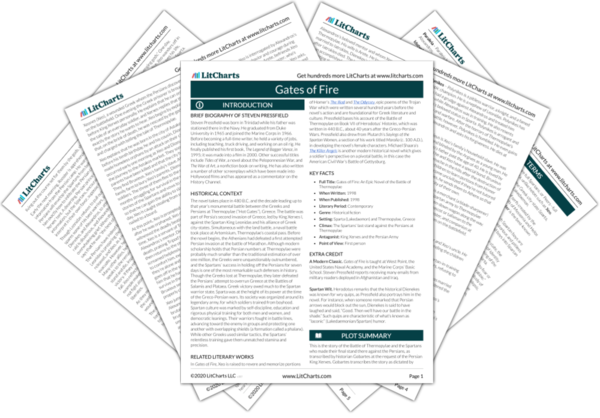Dienekes finally admits that the child is his, which brings dishonor on himself and defames Arete. It is never entirely clear what the whole story is here, but it allows Rooster, and hence Arete’s family line, to be spared. Alexandros also shows himself to be brave once again, as well as wise under pressure.Turning Rooster loose in this way would let him prove himself the ingrate the Spartans already think he is. Alexandros seems to suspect that there is more to Rooster than meets the eye.
